EXPERT
Issues
Locations
DOWNLOAD
The VRIC Monitor is a one-of-a-kind, monthly report from SFS tracking extra-regional influence in Latin America. VRIC stands for Venezuela, Russia, Iran, China where Venezuela represents the Bolivarian Revolution and the broader Bolivarian Alliance or ALBA. Likewise, Iran represents the Iranian Revolution and a growing presence of Middle Eastern actors in Latin America, namely its chief proxy, Hezbollah. The monitor is comprised of open source information selected by SFS analysts and fellows. This is not a complete list of media reports on VRIC presence in Latin America, but a snapshot of open-source media highlighting the major areas of VRIC influence.
Overview
As international pressure mounts against the Maduro regime in Venezuela, its extra-regional allies Russia, Iran, and China continue offering various forms of aid: Russia is providing military support, China is protecting critical infrastructure, and Iran is voicing support for the Maduro regime through state-run media. In March, Russia and China have supplied Venezuela with military technicians and more humanitarian aid. With additional U.S. sanctions on Venezuela’s state mining agency, Minerven, and its chief executive, the Maduro regime is increasingly relying on VRIC support to find alternative sources of revenue and financial channels to evade sanctions.
As Venezuela continues to dominate headlines worldwide, the VRIC nations are operating throughout the region. Russia and China prompt a nuclear energy race in Latin America, with China engaging in nuclear talks with Argentina and Russia collaborating on Bolivia’s nuclear program. Whereas, Brazil starts to edge out China to work closer with the U.S. on the heels of a historic visit to Washington, D.C. on March 17-19 by President Jair Bolsonaro.
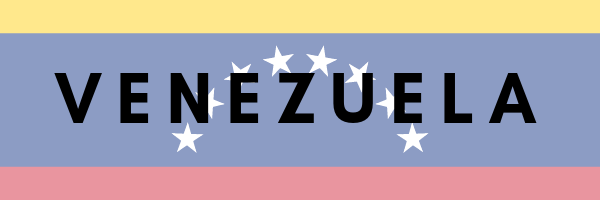
Venezuela experienced two blackouts last month, exacerbating the worsening humanitarian crisis within the country and devastating an already failed economy. Maduro accused the U.S. of launching cyber attacks that caused the blackouts, with China echoing this narrative, further positioning Venezuela as a proxy conflict between the U.S. and the VRIC nations.
The U.S. issued additional sanctions in early April and Citigroup sold of over $1 billion of Venezuela’s gold, adding to the economic pressure toward a transition to free and fair elections in the country. U.S. officials continue to sanction and highlight criminality within the Maduro regime.The Department of Treasury sanctioned the Venezuela state mining agency, further strangling the revenue sources of the Maduro regime. On March 8, the Department of Justice charged the Venezuelan Minister of Industry and National Production Tareck El Aissami with violations to his 2017 sanctions under the Foreign Narcotics Kingpin Designation Act along with several other senior Venezuelan officials.
Within the ALBA bloc, Bolivia is solidifying its extra-regional alliances; Nicaragua is negotiating with the opposition; and India is potentially rising as a strategic ally. Bolivian President Evo Morales visited Greece in March, promoting a solution to the Venezuela crisis with Greece’s support. Bolivia continues to engage in nuclear talks with Russia. However, a Petrobras fine on Bolivia’s state oil company for failing to deliver LNG shows that Bolivia’s energy production may not be as successful as their state reporting implies.
The creation of PROSUR to replace UNASUR has affected the ALBA, with its Secretary General David Choquehuanca denouncing the action, claiming that the new organization puts regional integration at risk. Lastly, India is increasingly active in the region. India’s increased engagement with Bolivia, signing 8 MOUs including culture, space, and medicine, as well as a contract to begin mining lithium in the Uyuni flats, marks India as a potential rising VRIC ally.
VENEZUELA AID TRACKER
| United States | $76 million dollars |
| Argentina | Help unit |
| Canada | $39 million dollars |
| Chile | 17 tons of food & medical supplies |
| China | 65 tons of medicine & supplies |
| EU | $65 million euros |
| Germany | €5 million euros |
| Iran | Unspecified pledge & medical aid |
| Italy | €2 million euros |
| New Zealand | $500,000 dollars |
| Palestine | Surgical team |
| Russia | 335 tons of food & medical supplies |
| Spain | €2 million euros |
| Sweden | $7 million dollars |
| Taiwan | $500,000 dollars |
| Turkey | Pledged, but none specified |
| UAE | Dh10 million |
| UK | £6.5 million pounds |
- Venezuelan Ministry of Foreign Affairs reports that on his official visit to Damascus, the capital of Syria, the Foreign Minister of the Bolivarian Republic of Venezuela, Jorge Arreaza, held a meeting with the President of the Syrian Arab Republic, Bashar Al-Assad. – Venezuelan Ministry of Foreign Affairs on 04-APR
- Venezuela’s Foreign Minister Jorge Arreaza arrived in Beirut on April 3 for a series of meetings with Lebanese officials. Arreaza met with Lebanon’s president Michel Aoun and his counterpart Gebran Bassil. The envoy of embattled Venezuelan leader Nicolas Maduro was expected to also meet with Hezbollah leader Hassan Nasrallah, and Lebanese prime minister Sa’ad Hariri before traveling onward to Syria, according to Beirut-based Naharnet. – Times of Israel on 03-APR
- Venezuela’s Supreme Court has asked for opposition leader Juan Guaidó to be stripped of his parliamentary immunity, a move that could lead to his jailing. The pro-government Constituent Assembly is expected to back the request. The court ruling said Mr Guaidó should be prosecuted for violating a travel ban when he toured several Latin American countries a few weeks ago. The Supreme Court has already banned him from holding office for a period of 15 years and arrested his right-hand man on terrorism charges. – BBC on 02-APR.
- Ugandan police have returned a gold consignment worth $149 million to the country’s biggest gold refinery after the attorney general dismissed allegations that it had smuggled the metal from sanctions-hit Venezuela. The gold was part of a 7.4-tonne shipment valued at around $300 million that African Gold Refinery (AGR) imported in two batches – 3.8 and 3.6 tonnes – from South America on March 2 and March 4, respectively. – Reuters on 28-MAR
- The United States imposed sanctions on Minerven, the Venezuelan state mining company. The sanctions also target the boss of the mining company, Adrián Perdomo, who is accused of illicit operations supporting the Maduro government. The sanctions came following the discovery of suspicious gold in Uganda that came from Venezuela. – El Economista on 19-MAR (content in Spanish)
- Venezuelan Minister and former Vice President Tareck Zaidan El Aissami Maddah charged with violations of the Foreign Narcotics Kingpin Designation Act. El Aissami and Samark Jose Lopez Bello violated U.S. Sanctions in connection with their use of private jets, including the February 23, 2019 return flight by El Aissami from Russia to Venezuela. – U.S. Department of Justice on 8-MAR
- Citigroup Inc. plans to sell several tons of Venezuelan gold it received as collateral from the Maduro regime to settle the country’s $1.6 billion loan after the deadline to repurchase the precious metal expired earlier this month, reports said. Venezuela was due to repay $1.1 billion of the loan March 11, according to the terms of the 2015 deal with Citigroup’s Citibank, four sources familiar with the matter told Reuters. The remainder of the loan is due next year. – Fox News on 21-MAR
THE ALBA
- Bolivia will provide India with access to its lithium carbonate and also facilitate joint ventures for lithium battery/cell production plants in India. The partnership will provide a major fillip to India’s ambitious e-mobility plans. – PV Magazine on 02-APR
- We are happy to have Bolivia as a partner in the International Solar Alliance and welcome the signing of the framework agreement establishing the bond. In addition, we have signed eight MOUs in the fields of culture, Visa waiver arrangement for diplomats, the exchange between diplomatic academies, mining, space, traditional medicine, the establishment of Centre of Excellence in IT and Bi-Oceanic Railway project,” said Indian President Kovind. – ANI on 30-MAR
- Brazilian state-run oil company Petrobras has fined Bolivia’s state oil company YPFB after it failed to deliver liquefied natural gas (LNG) volumes secured under a contract through the Bolivia-Brazil pipeline during 2018, a Petrobras executive said. – Hellenic Shipping News on 28-MAR
- ALBA Secretary General David Choquehuanca condemned the abolition UNASUR and the creation of PROSUR, citing that the decision puts the integration of the region in crisis. – Kandire on 22-MAR
- Opposition delegates to talks on resolving Nicaragua’s political standoff said they will not return to the table until the government shows “signs of goodwill” on demands such as the full release of hundreds considered political prisoners. – ABC News on 19-MAR
- Greece backed calls by Bolivia’s left-wing President Evo Morales for a negotiated settlement to the severe political and financial crisis in Venezuela, in what marks a different approach to that pursued by key European allies.- NBC News on 15-MAR
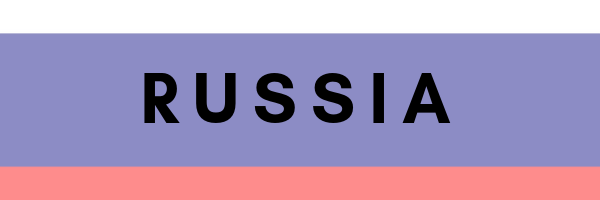
Russia’s activity in March has been highlighted by an increasing military presence in Venezuela with additional military personnel and military equipment- including aircraft, missile launchers, and radar in the event of U.S. intervention. At the moment, Russia seems to be Venezuela’s central propaganda link in the VRIC alliance- Russia and China vetoed the U.S. resolution on Venezuela in the United Nations Security Council and Russian and Iranian officials have spoken about collaboration regarding Venezuela. Currently, the cohesive, unified action by all three of the extra-regional VRIC nations is highlighted in their media campaigns that perpetuate pro-Maduro and anti-U.S. messaging.
Russia continues to engage elsewhere in the region, as well. Along with supplying Venezuela with military assistance, Russia has sent new military armaments to Cuba. Russia also continues its nuclear engagement, with nuclear energy talks scheduled for Bolivian President Evo Morales’s visit to Moscow in July.
- In a three-page letter addressed to the President of the House of Representatives Alejandro Chacón, the Russian Embassy warned that “any type of incursion” into Venezuela will be interpreted by Moscow as a “threat to international peace and security.” – El Heraldo on 02-APR (content in Spanish)
- Russian state media reports that Russia opened a helicopter flight training center in Venezuela to assist Venezuelan pilots in learning how to fly Russian-made Mi-family helicopters, said Rosoboronexport, Russia’s state arms exporter. – Sputnik on 29-MAR
- Russian state media reports that representatives of Russia and Cuba signed a memorandum on cooperation aimed at expanding cooperation in the communication sector. The document contains the main items of cooperation planned in the field of communication technologies and security systems, including on cyberspace. – TASS on 26-MAR
- Cuba acquired a $42 million loan from Russia to purchase new armaments, demonstrating Russia’s intention to maintain its presence in the strategic zone of the Caribbean.- Periódico Cubano on 25-MAR (content in Spanish)
- Bolivia’s President Evo Morales will travel to Moscow in July in part to seek closer cooperation between Gazprom and his country’s state owned natural gas industry, the nation’s top revenue earner. Bolivia’s Foreign Minister Diego Pary said Bolivia is working on agreements for “cooperation with Gazprom and investment into the Center for Nuclear Research” ahead of Morales’ visit in July, Tass reported. – UPI on 21-MAR
- High-level U.S.-Russian talks on how to defuse Venezuela’s crisis ended with the two sides still at odds over the legitimacy of Nicolás Maduro. Russia has said Maduro remains the country’s only legitimate leader whereas the United States and many other Western countries back Juan Guaidó, head of the opposition-controlled National Assembly who invoked a constitutional provision in January to assume an interim presidency. Reuters on 19-MAR
- Pakistani state media reports that the fact the high-level Russian-Venezuelan intergovernmental commission will convene in Moscow in mid-April proves that Russia pursues the policy of strategic partnership with the Latin American country, Russian Ambassador in Caracas Vladimir Zaemskiy said in an interview with Sputnik. – Urdu Point on 18-MAR
- Gazprombank, Russia’s third biggest lender by assets, has sold its indirect stake in the Petrozamora joint venture in Venezuela, a source at the bank said. – Reuters on 14-MAR
- Sources from the Russian embassy in Venezuela informed Russian state news agency Sputnik that two planes with 99 soldiers and 35 tons of humanitarian aid arrived in Venezuela on March 24. – Diario Las Americas on 24-MAR (content in Spanish)
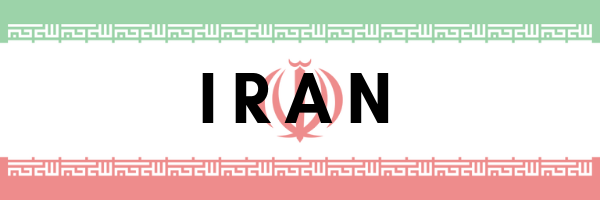
In March, Iran voiced solidarity with Maduro’s regime and spoke with officials in Moscow to “maintain peace” in Venezuela. But, whereas China and Russia’s support has been broadcast publicly, Iran continues to extend its support in the shadows, such as a new, weekly “commercial” flight by the Iranian private airline Mahan Air. Elsewhere in Latin America, Iran and its allies focus on cultural engagement, particularly with Mexico and Brazil. Iran and Mexico celebrated cultural ties in March and also discussed strengthening parliamentary ties.
Iran’s allies in the Middle East actively engage in the region. The Foreign Minister of the United Arab Emirates H.H. Sheikh Abdullah bin Zayed Al Nahyan visited Brazil in March to see cultural landmarks. The UAE also made a $50 million investment in clean energy projects in the Caribbean, marking a more direct economic engagement from the Middle East in Latin America. Azerbaijan and Paraguay have increased ties by abolishing their visa regime, facilitating easier travel between the two nations.
Turkey and Qatar, which were featured in last month’s monitor, continue to engage with the region. Venezuela and Turkey have only grown closer following the illicit gold trade that was exposed this year- the Venezuelan Foreign Minister visited Turkey on April 1 to discuss regional and international issues. Bolivian President Evo Morales also visited Turkey to stress increased cooperation between the two countries. Moreover, Qatar’s Minister of Culture visited both Panama and El Salvador in March.
- An Iranian delegation landed in Venezuela on a plane belonging to Mahan Air to discuss launching direct flights between the two countries within the coming months, Venezuela’s foreign minister said, as Tehran voices support for Nicolás Maduro against the opposition backed by most Western countries. – Reuters on 08-APR
- Cuban state media reports that the Week of Iranian Cinema will conclude on Sunday, April 7, after the screening of five films made between 2003 and 2014, including Che (the name of the letter ch in the Persian alphabet), by the filmmaker Ebrahim Hatamikia.- Prensa Latina on 1-APR
- Osvaldo Raffo, who proved that prosecutor Alberto Nisman was deliberately killed in 2015 after exposing an Argentine effort to cover up Iran’s role in AMIA bombing, kills himself. Raffo’s analysis hurt then-President Kirchner, who has been indicted.- Israel Hayom on 27-MAR
- The UAE has made a $50 million (Dh183m) investment into clean energy projects in the Caribbean. The plan is to build electric vehicle stations and solar power plants in the largest project of its kind in the region. – The National on 19-MAR
- Iranian state media reports Iranian Foreign Minister Mohammad Javad Zarif and his Russian counterpart, Sergei Lavrov, have expressed their readiness to work towards the settlement of the Venezuelan crisis through political approaches. In a phone call initiated by the Iranian side, Zarif and Lavrov discussed the latest developments unfolding in Venezuela, which has been grappling with a political crisis since January, Xinhua quoted the Russian Foreign Ministry as saying in a brief statement. – Press TV on 19-MAR
- An Iranian couple entered Argentina on Tuesday, March 12 with forged Israeli passports, La Nación and Clarin reported over the weekend. The two Iranian nationals were arrested on Saturday, March 16 in Buenos Aires. – Haaretz on 18-MAR
- Iran state media reports, in a meeting between Iranian Ambassador to Mexico Mohammad-Taghi Hosseini and Mexico’s President of the Senate of the Republic Martí Batres Guadarram, the two sides discussed ways to reinforce common parliamentary ties. – Mehr News on 17-MAR
- H.H. Sheikh Abdullah bin Zayed Al Nahyan, Minister of Foreign Affairs and International Cooperation, has visited the Cathedral of Brasilia in Brazil, which is one of the most important landmarks in Brasilia. – Emirates News Agency on 17-MAR
AZERBAIJAN
- Azerbaijan state news stated that Azerbaijan and Paraguay signed an agreement “On the mutual elimination of visa requirements for persons with diplomatic and official passports,” Trend reports. The agreement was reached during a meeting of Azerbaijani Foreign Minister Elmar Mamedyarov with his Paraguayan counterpart Alberto Castiglioni as part of his first visit to Paraguay. – Azer News on 24-MAR
HEZBOLLAH
- A Miami court sentenced Ali Nasreeddine Kassir, a Miami-based Lebanese businessman and suspected Hezbollah facilitator, who pleaded guilty to passport fraud and conspiring to commit money laundering totaling over $70 million. Kassir’s conviction opens a string of interconnected cases implicating alleged Hezbollah financiers, Nader Mohamad Farhat and Mahmoud Ali Barakat, and their U.S.-based business counterparts. – The Hill on 02-APR
- The man said to be Hezbollah’s top financier Nader Mohamad Farhat faces extradition to the United States from Paraguay. Billions of dirty dollars flow through the South American country, according to American officials, and some of that ends up in the hands of the Iranian-backed terror organization. – Clarion Project on 13-MAR
QATAR
- Pro-government Qatari press states the Minister of Culture and Sports H E Salah bin Ghanem Al Ali met with the Ambassador of the Republic of Panama to the State of Qatar, Oreste Del Rio Sandoval. During the meeting, they discussed aspects of cooperation between both countries in cultural and sports fields and ways to boost and develop them. – The Peninsula Qatar on 02-APR
- Pro-government Qatari press states Minister of Culture and Sports H E Salah bin Ghanem Al Ali met with the Ambassador of the Republic of El Salvador to the State of Qatar, Alfredo Arturo Samayoa Molina. During the meeting, they discussed aspects of cooperation between the two countries in cultural and sports fields and means of developing them. – The Peninsula on 26-MAR
TURKEY
- Pro-government Turkish press reports in an exclusive interview Morales states, “Turkish Airlines is a world-renowned brand. There is a common expectation and desire for Turkish Airlines’ direct flights to Bolivia.” As the geographical distance is considered an obstacle that impedes Turkish and Bolivian businesspeople from traveling frequently, the move might contribute to developing economic ties. – Daily Sabah on 10-APR
- Evo Morales became the first Bolivian president to visit Turkey, where the leader met with his Turkish counterpart Recep Tayyip Erdogan. Erdogan had just returned from a visit to Russia, where he met with Vladimir Putin. The three nations have been united recently over their foreign policy approaches to the ongoing crisis in Venezuela. – EFE on 09-APR
- Turkish Foreign Minister Mevlut Cavusoglu says Turkey is giving Venezuelan President Nicolas Maduro its continued support and intends to deepen cooperation with Venezuela “in all fields” despite U.S. pressure. Cavusoglu spoke during a joint news conference in Turkey with Venezuela’s Foreign Affairs Minister Jorge Arreaza. – Fox News on 01-APR
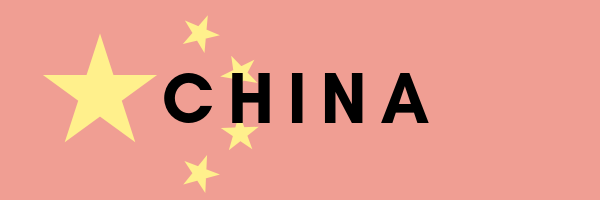
China continues to be a strong ally to Venezuela voicing its support for Maduro, assisting with power restoration, and purchasing oil. China offered material support with humanitarian aid and military supplies delivered by 120 soldiers on Sunday, March 31. However, Venezuela does not distract China from its larger goals in Latin America. China continues to secure multiple critical infrastructure projects and pursue nuclear energy engagement in the region while working to strengthen its relationships with U.S. allies such as Panama, Argentina, and Chile. Since President Jair Bolsonaro took office, Brazil has begun to edge China out, but China is still cultivating its previously secured projects in the country.
North Korea also engaged with the VRIC this month, as Cuba’s state news agency Prensa Latina announced that the company may open a Pyongyang bureau later this year.
- On Sunday, March 31, 120 Chinese soldiers arrived on the island of Margarita to deliver humanitarian aid and military supplies. – Israel Noticias on 03-APR.
- China used its United Nations Security Council veto in February to knock down a resolution condemning the fraudulent May 2018 Venezuelan presidential election and calling for new elections and international humanitarian aid for the country. The resolution was backed by France, the U.K. and the U.S. Russia also voted to block the resolution, but it might not have done so without China’s cover. – The Wall Street Journal on 18-MAR
- A delegation from China will visit Argentina this month to discuss the construction of a nuclear power plant, signaling possible progress in a deal that could increase Beijing’s deepening influence in Argentina. Accordingly, the “technical team” from China would meet local suppliers about the long-stalled nuclear power plant project, reportedly worth up to $8 billion. – Merco Press on 16-MAR
- Recently, China gave Panama a feasibility study for the construction of a train line between the Panamanian capital and the border with Costa Rica, a work that illustrates the expansion of Beijing in Latin America. – Costa Rican News on 16-MAR
- China’s government is interested in supporting Brazil’s Paraná state in its ambitious project to build a bi-oceanic freight rail corridor between the port of Paranaguá and the port of Antofagasta in northern Chile, passing through Paraguay and Argentina. – BNAmericas on 15-MAR
- Chilean lithium miner SQM received environmental approval to expand its lithium carbonate production plant, the local environmental regulator told Reuters, marking a milestone as the company seeks to boost output of the coveted ultralight battery metal. The $400 million plant expansion, once complete, would allow the Chinese-backed SQM to eventually produce as much as 180,000 tonnes of lithium carbonate a year from its Atacama salt flat operations in Chile. – NASDAQ on 14-MAR
- China offered to help Venezuela restore its power grid, after Nicolás Maduro accused President Donald Trump of cyber “sabotage” that plunged the South American country into its worst blackout on record. – Reuters on 13-MAR
- China and Russia have continued to defy the United States on Venezuela, vowing to assist the cash-strapped and crisis-stricken government that has been targeted by President Donald Trump. – Newsweek on 13-MAR
- The recent arrival of 200 electric buses made by Chinese manufacturers BYD and Yutong in Santiago has highlighted a dramatic shift in China’s relationship with Latin America. Officials in Santiago say the BYD and Yutong deals — which will give Chile’s capital the second-largest fleet of electric buses in the world, for an undisclosed price — are just the beginning of a ramp-up of Chinese investment in Latin America. – OZY on 7-MAR
NORTH KOREA
- North Korean state media reports that Prensa Latina may formally set up Pyongyang bureau this year. 62-year-old Benito Joaquín Milanés has worked as Cuba’s state news agency Prensa Latina’s first full-time “special envoy” in Pyongyang. Since then, he’s been filing regular stories from the North Korean capital, sometimes several times a day, enjoying a degree of access not typically afforded to members of the international press. NK News on 21-MAR
Disclaimer: The VRIC Monitor does source a limited amount of media reports from state-owned or -controlled media outlets from VRIC nations. These media reports are carefully selected and solely intended to report on cultural, diplomatic, economic, or military activities that are not reported on by other media and relevant for understanding VRIC influence in the region. Given the inevitability that state propaganda will be mixed into these articles, we ensure that reporting from state-media outlets is no more than 20 percent of the overall VRIC Monitor and exclude any opinion pieces or anti-US (anti-West) declarations of any kind.


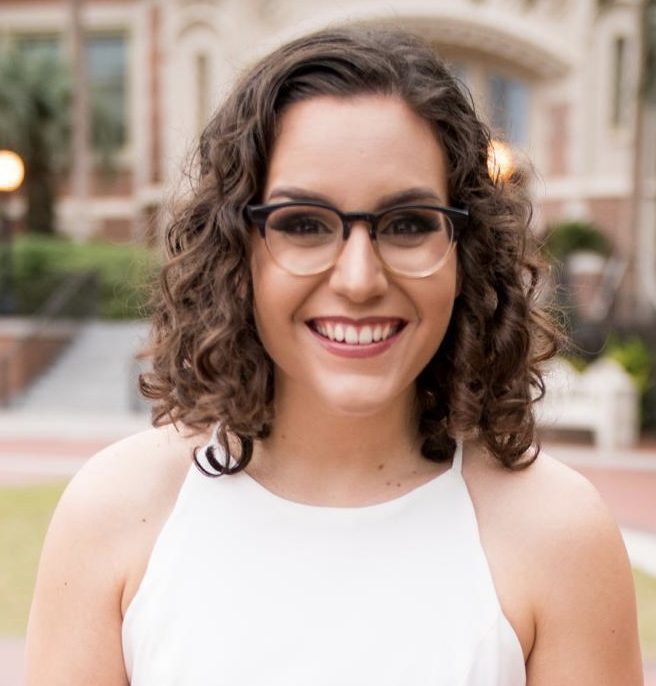 Christina Armes Hunter
Christina Armes Hunter